A photojournalist's struggle for democracy
Exclusive: Dhaka's Shahidul Alam's journey from activist to prisoner to Time person of the year
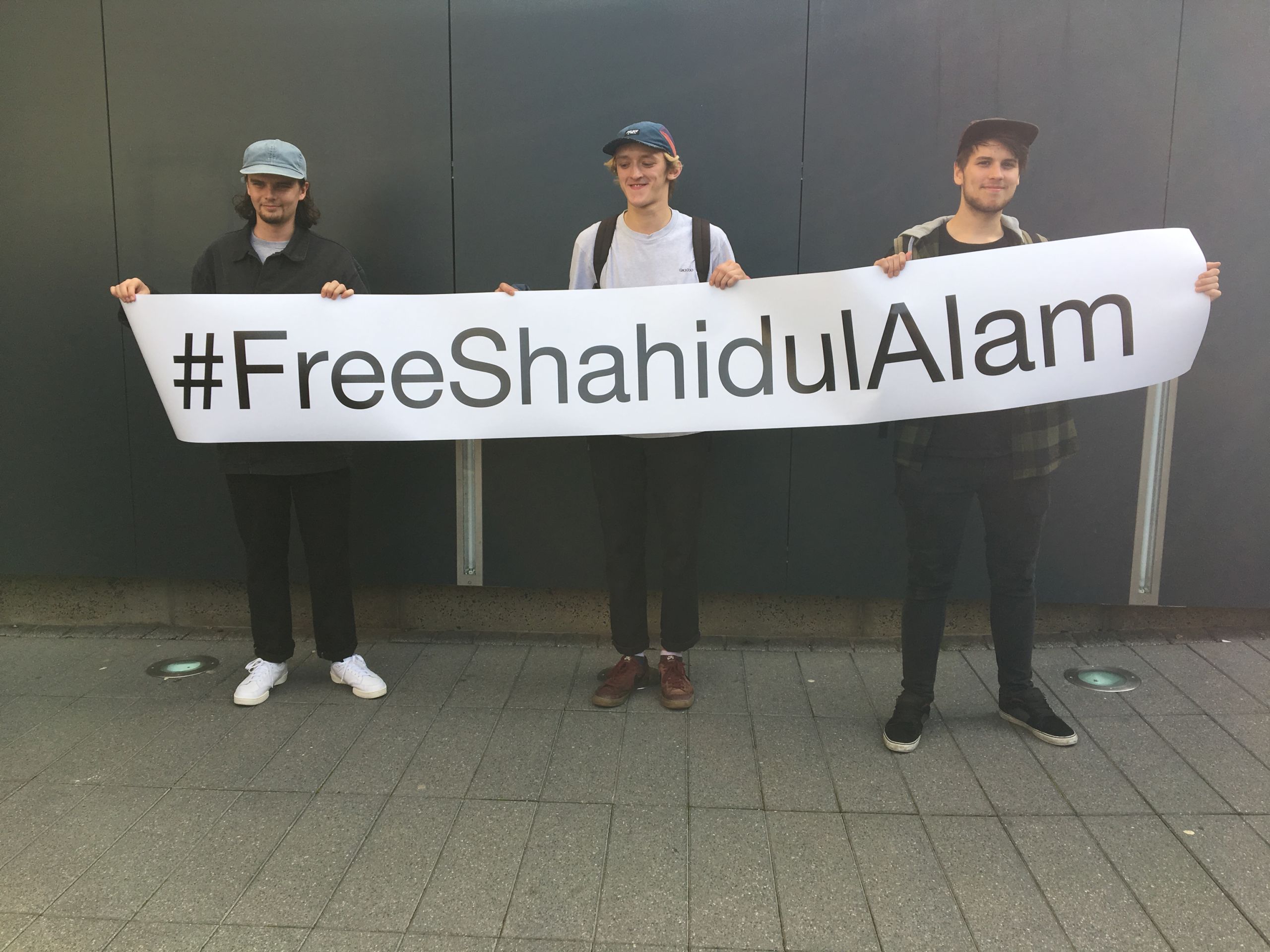
Arbitrarily arrested, jailed and tortured; that was the journey that Shahidul Alam, a Bangladeshi activist and photographer, had to go through after he voiced his concerns over student protests in the Bangladeshi capital, Dhaka.
For more than 100 days, the 63-year-old award winner was locked up in jail for exercising his freedom of expression rights in his hometown following an interview he did with Al Jazeera TV. He was released from jail a hero, with determination to make a difference.
Shahidul Alam was arrested on August 5, 2018, with charges of making false and provocative statements about Dhaka’s student protests on social media and on TV. He was later released, though only on bail. Shahidul's case gathered global attention, with campaigns all over the world calling for his release.
Throughout his ordeal, Shahidul has not lost his faith in the power of his camera or his duty as a photojournalist.
He said: "It was my passion for human rights that prompted me to become a photojournalist in the first place. I chose photography as a medium because I recognised its transformative potential. As long as this medium continues to shape people’s minds in such a powerful manner, it will continue to be my weapon of choice."
Universities in the UK took it upon themselves to start a supporting campaign for Shahidul by showing exhibitions of his artwork, including the University of Sunderland, where Shahidul works as a visiting professor.
More than 100 students, staff and Sunderland locals attended the opening of an exhibition of Shahidul’s photography collection, Bangladesh - A Struggle for Democracy.
Although Shahidul has been released from his captivity on bail, he still faces a potential jail sentence. However, he expressed his gratitude for the campaigns that were held calling for his release.
He said: "The future of our planet lies with the profession that -student journalists- are part of. I am immensely grateful for the role that -students- and others all across the globe, played in the campaign for my freedom.
"I am not free and I still face a potential jail sentence of fourteen years, but the fight cannot be for my freedom alone. It must be for the thousands of Bangladeshis who are unjustly incarcerated, disappeared and killed by extra-judicial means. It must be for the people across the globe who face injustice.
"One does not always find oneself in a position where one can make a difference. You have to decide whether your life matters in a meaningful way. History is watching."
The Sunderland exhibition's opening event was organised by Amanda Ritson, program manager of North East Photography Network (NEPN), Arabella Plouviez, Dean of the Faculty of Arts and Creative Industries at the University of Sunderland and a number of other staff members and local charities.
Amanda said that she first met Shahidul in 2004 and that his artwork meant a lot for the students and the city of Sunderland.
She said: "It was very shocking. We first heard about Shahidul’s situation fairly early on in terms of his arrest.
"I had been on Facebook following Shahidul’s live feed from the student protests in Dhaka. Then it was a matter of hours later that one of Shahidul’s friends had posted about his arrest.
"Rather quickly afterwards, I got into conversation with Arabella and we started trying to find out what was happening and quickly after there was an Amnesty International appeal and we started to think: what can we do?
"We wanted to add our voices to the many others that were rapidly growing in campaigning to support the Amnesty International appeal and also to provide a general awareness to our students and the general public."
Arabella also expressed her shock upon hearing the news of Shahidul's abduction. But she said that she still believes in Shahidul's cause and the impact photography can have.
She said: "I think people sometimes undermine the power of photography. It's a language that we understand and can speak across other language barriers."
(Background images taken at the Sunderland exhibition - Credit: Mariam Khattab)
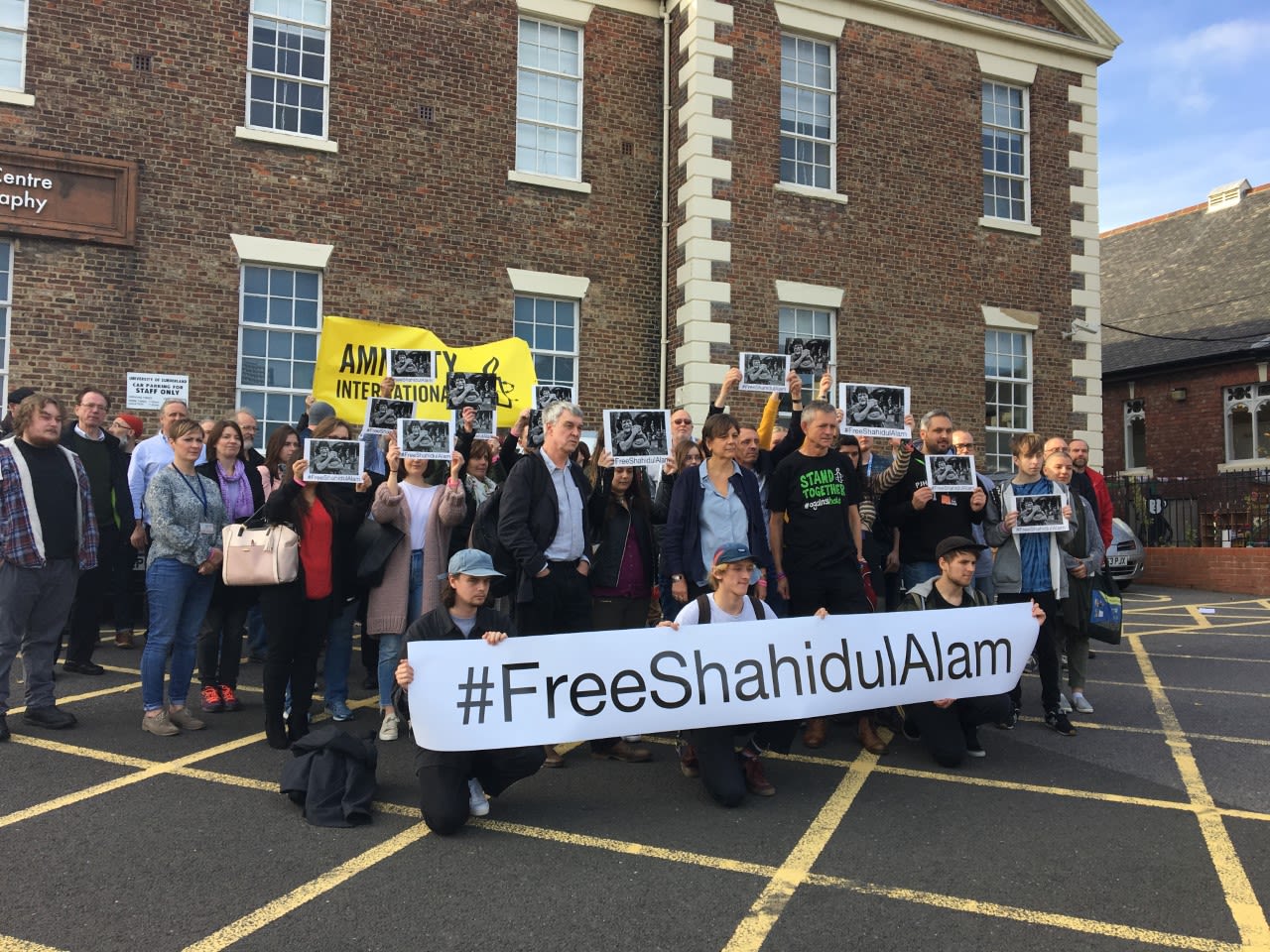
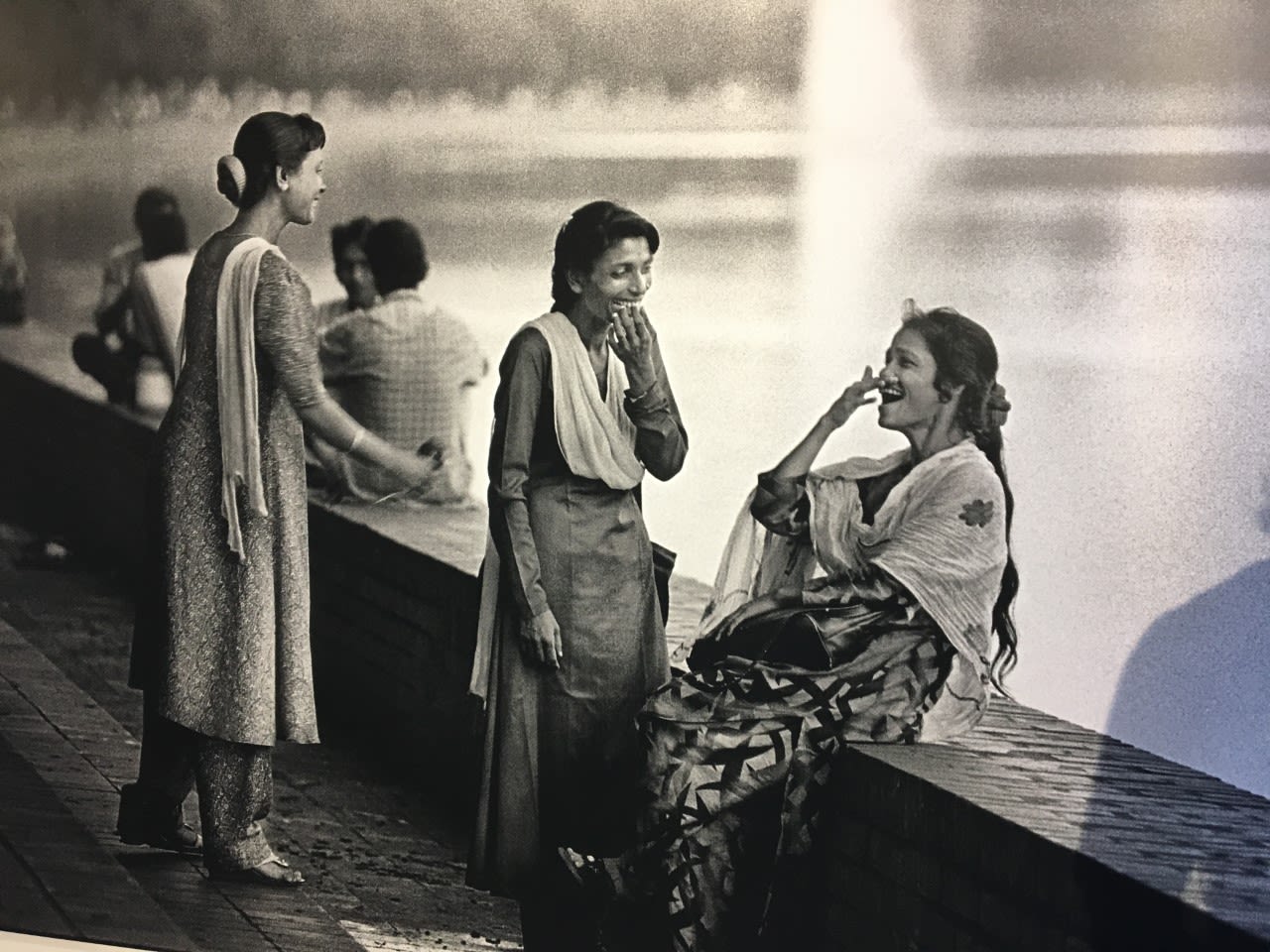
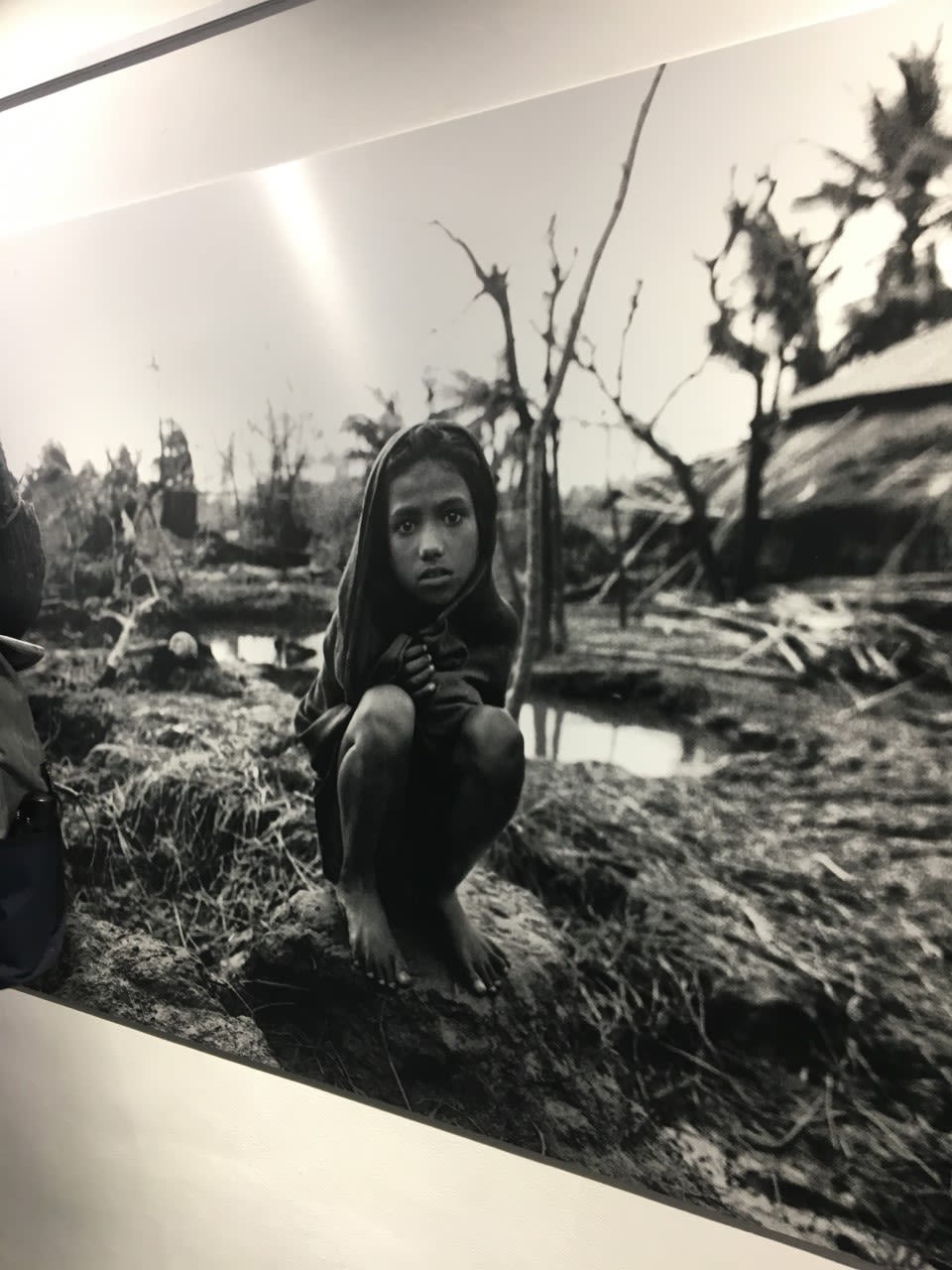
Video by: Mariam Khattab - An exhibition of Shahidul Alam's photography work, at the University of Sunderland, with students, academic staff and local charities calling for his release.
Video by: Mariam Khattab - An exhibition of Shahidul Alam's photography work, at the University of Sunderland, with students, academic staff and local charities calling for his release.
One of the photography students volunteering at the event, Jenny Goodfellow, said she was shocked when she heard of what had happened to Shahidul.
She said: "I volunteer at the NEPN who were arranging the exhibition and they asked me if I wanted to be there and document it.
"I knew about Shahidul because in the summer I heard he had been arrested and I was very upset and concerned.
"I just felt so strongly about this. When I met him in February last year, he was so lovely and so open and warm and I just thought he doesn’t deserve any of this. He was just telling the truth."
Once the local Amnesty group in Sunderland heard of the case, they started calling for action to release Shahidul Alam immediately.
Stephen Newman, Secretary of Wearside Amnesty local group in Sunderland, said: "I worked on an urgent action for Shahidul Alam and we have been doing some letter writing within the Amnesty local group.
"The urgent action contains some background on the case then it includes some points that we send in letters."
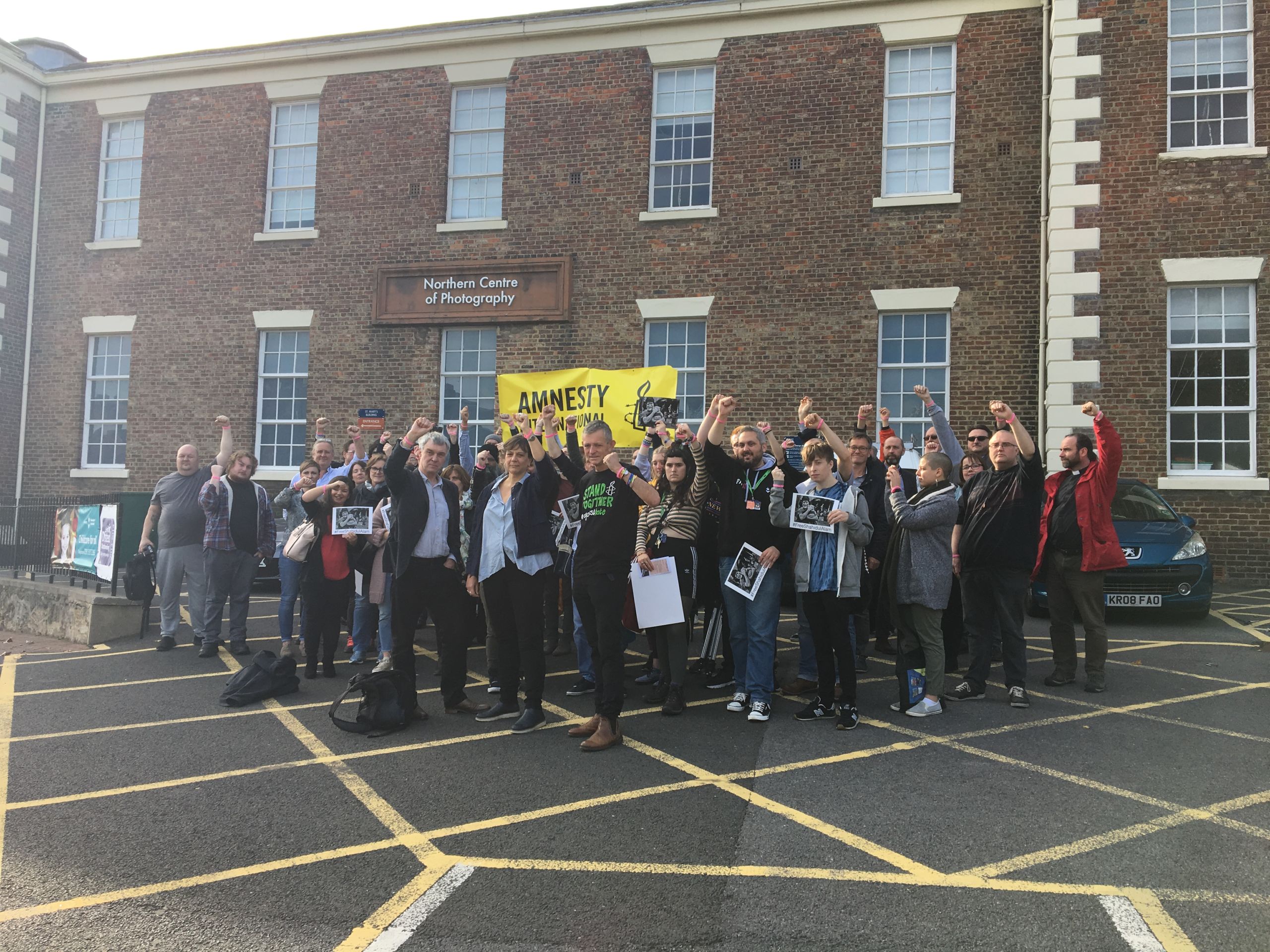
Credits: Mariam Khattab
Credits: Mariam Khattab
On the other side of the world in Bangladesh, Tanvir Murad Topu was the first to announce the story of Shahidul's abduction.
Topu works as the head of photography department at Pathshala, a South Asian media institute set up by Shahidul.
Topu said: "Just after the abduction, within five minutes, I heard the news.
"The first thing that came to my mind is to inform the media, the international audience and the local people."
Topu described Shahidul as his mentor and teacher during his journey as a young photographer, and talked about how much it pained him to see Shahidul go through this ordeal.
He said: "I learned everything from Shahidul. I am here because of him.
"When I first heard the news that he was abducted, the first thing that came to my mind was oh my God, what is happening?
"I was scared, but inside I had that confidence that they can’t do anything harmful to him.
"To this day it’s hard to think about how someone can hit Shahidul. Somehow our morality was broken at that time."
Shahidul's fight for democracy still continues as he battles for not only his freedom, but also for the freedom of journalism in Bangladesh.
Shahidul said: "While there continues to be notable exceptions, journalism in Bangladesh has abdicated its position to a large extent.
"Freedom of speech is virtually non-existent and journalists have taken on the role of being government PR agents rather than standing up for the public good.
"I recognise that media has to be viable in order to survive. But the pursuit of profit can never be its primary goal. If media fails to serve the public, it has no reason to exist in Bangladesh or elsewhere.
"I would love to return to Sunderland to my friends, colleagues and students, but right now my place is here in Bangladesh. It is the need of my people that I must attend to first."
You can visit Amnesty International's website for more information on Shahidul Alam's case and their work in Bangladesh.

